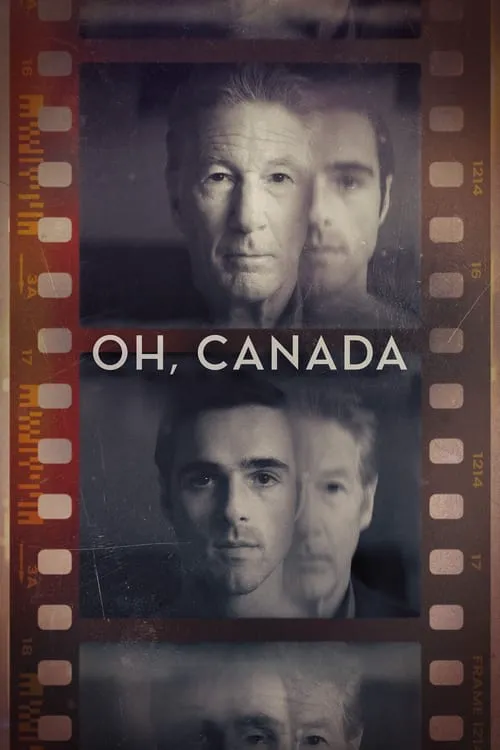Oh, Canada

Plot
In the critically acclaimed Canadian film "Oh, Canada," the focus shifts to a pivotal figure in Canadian history and the anti-war movement of the 1960s - Leonard Fife. The movie is an intense, intimate portrayal of Fife's complex life, from his involvement in the Vietnam War and subsequent draft evasion to his experiences as a left-wing documentary filmmaker. As Fife sits in his Montreal home, struggling with his final days and grappling with mortality, he endeavours to share the unfiltered truth about his life and shed light on the myths and misconceptions that have long surrounded him. Fife recounts his early years, spending time in the United States and attending high school in Iowa. A rebellious and idealistic youth, he became increasingly disillusioned with the status quo, developing a strong aversion to authority and a deep-seated distrust of those in power. This nascent radicalism ultimately led him to become entrenched in the civil rights movement of the early 1960s. His passion for social justice and activism drove him to create a formidable presence as a documentary filmmaker. The film's raw, unvarnished portrayal of Fife's experiences in Vietnam war is particularly poignant. Moving from New York to Canada in an effort to avoid the draft, Fife lands in the small Quebec town of Sherbrooke, where he settles into a unique but isolated community comprised largely of draft resisters. Many of these individuals, fleeing in fear of what lay ahead for those serving in the war, forged unbreakable bonds amidst this period of transition. Without the burden of official narration, Fife seamlessly weaves together powerful anecdotes and chilling observations from those days. Graphic descriptions of soldier friend, Mike's death in the Cambodian incursion may be what leaves Canadian audiences most disheartened. By juxtaposing scenes of post-war life in Quebec alongside the turmoil and anxiety felt by draft evaders, Fife offers a searing critique of war's broader social consequences, leaving the viewers a lingering sense of tragic loss. As he recounts these difficult moments from his life, Fife confronts his own past, tackling personal vulnerabilities and speaking out against the societal pressures that contributed to the creation of his activist persona. A shrewd dissection of Fife's highly publicized, rebellious 'life of excesses' rapidly becomes merely a sobering self-reflection, reflecting the many trials he endured as a social activist, man of art and a Vietnam war resister. In Fife's efforts to speak candidly about his transformation into one of the anti-Vietnam war movement's most visible figures, the contrast between his radical youth and the existential anguish that accompanies old age becomes increasingly evident. This sharpness makes Fife a tangible realisation of that the ravages of time inevitably claim someone as principled, ultimately honest and intense as Leonard Fife. Focusing primarily on Canada as a refuge for draft resisters from the U.S, Leonard's 'anecdotal confessionary,' leads audiences into various vantage points. That include foraying into lesser-known locations - places that would yield multiple unknown, previously long-forgotten voices - providing a fascinating glimpse into this heretofore obscured world. From exploring historical episodes to mapping the intersection of different social expressions and personal relationships built during these anti-Vietnam resistance protests, We can say the movie covers such vast but so deep meaningful ground. Set against the cityscape of Montreal where Fife's dying is the backdrop, the author chooses a refreshingly powerful framework to engage the viewer and create deeper interlink between its context and the historical depth.
Reviews
Recommendations

